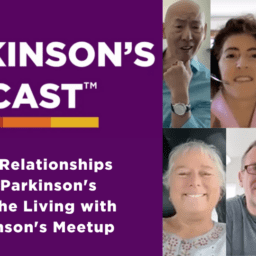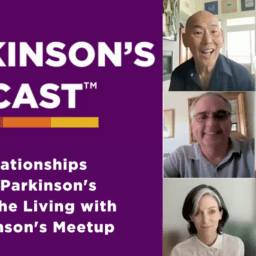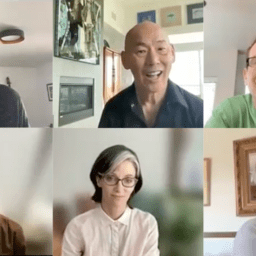Like depression and anxiety, apathy is a common non-motor symptom of Parkinson's and can have a significant impact on your quality of life. In this post, we'll explore what apathy looks like, how it differs from depression, diagnosis, and treatment strategies.
What Is Apathy?
Apathy is a loss of motivation, desire, and interest. It can occur separately from depression and may be misinterpreted as laziness, disinterest, or lack of initiative. Though the cause of apathy in Parkinson’s is unclear, research indicates that it’s due to a chemical imbalance and structural changes in the brain.
Not only can apathy affect your attitude, but it can also negatively affect the treatment of Parkinson’s. If you have lost the incentive to take your medicine, it can exacerbate your motor symptoms. If you have lost the desire to exercise, work on hobbies, or attend social engagements, it can cause social isolation and affect your personal and work life.
Often apathy is more frustrating for the care partner than the person with Parkinson’s. The adage, “You can lead a horse to water, but can’t make him drink,” holds for your care partner when apathy is part of your lives. If you’re a care partner of someone experiencing apathy, check out our article here for ideas on how to best manage apathy in your person with Parkinson’s.
WHAT IS THE DIFFERENCE BETWEEN APATHY AND DEPRESSION?
One day a care partner brought her husband to see psychiatrist Greg Pontone, MD, MHS, because she was worried that he just sat on the couch all day and did nothing. Dr. Pontone asked him, “Do you know the difference between apathy and depression?” He replied, “I don’t care.” This is a perfect example of apathy – he did not care. Usually, with depression, there is a negative component of hopelessness, sadness, and possibly suicide. However, like this man with Parkinson’s demonstrated in his apathetic reply, he felt nothing and was emotionally flat.
Another person Dr. Pontone worked with was a lifelong baseball fan. One day when he was watching the seventh game of the World Series, the power went out. When the power came back on, the screen showed snow. An hour went by, and he continued to watch snow on the screen rather than the seventh game of the World Series. Again, he was not frustrated, upset, or depressed. He was apathetic and just didn’t care.
diagnosis
It is critical to work with your physician to obtain an accurate diagnosis since treatment for depression is often different from treatment for apathy. Apathy seems to parallel cognitive decline in that it impacts disorganization and memory loss more than depression does.
The best evidence that apathy is more linked to cognitive decline than to depression is the medications’ effectiveness based on the diagnosis. Medications for cognitive problems appear to work better for apathy than medications used to treat depression.
STRATEGIES TO MANAGE APATHY
Like all the symptoms of Parkinson’s, apathy requires that you make active choices to achieve your best quality of life. Here are some you can try, right away.
#1 - Get out of the house daily
Create a weekly plan, or at least a plan for the day ahead, of leisure activities you want to do outside the home. If you plan the activity ahead of time, you don’t even have to think about it, and you can just step into it.
Ideas to consider:
- Try a new restaurant
- Meet a friend for coffee
- Check out your public library
- Take a stroll through a local park
- Go to a thrift store or second-hand store
- Window shop
- Look up weekly events in your town
- Explore a new hobby
- Attend a poetry reading
- Join a chess club
- Make yourself accountable by planning to meet a buddy
#2 - Practice good “sleep hygiene”
Sleeping enough each night can affect how motivated you are to get out of bed and do something. One of the side effects of Parkinson’s is sleep disturbance. Lack of sleep can cause fatigue the next day, which can cause you to be apathetic. In addition to the basics of good sleep hygiene of getting up and going to bed on a set schedule, keeping your mind active during the day can help promote a more restful night of sleep.
#3 - Talk with your care team members
If you or your care partner notice that you're experiencing apathy, talk with your physicians and ask for a referral to a mental health provider (a psychiatrist, psychologist, therapist, or social workers) if necessary. Your physicians may be able to adjust your medication regimen in ways that can help manage apathy, and therapy may also prove to be a powerful treatment.
Learn More
You can find much more about managing Parkinson's symptoms in our Every Victory Counts® manual. It’s packed with up-to-date information about everything Parkinson’s, plus an expanded worksheets and resources section to help you put what you’ve learned into action. Request your free copy of the Every Victory Counts manual by clicking the button below.
Thank you to our 2021 Peak Partners, Adamas, Amneal, Kyowa Kirin, and Sunovion, as well as our Every Victory Counts Gold Sponsor AbbVie Grants, Silver Sponsor Lundbeck, and Bronze Sponsors Supernus and Theravance for helping us provide the Every Victory Counts manual to our community for free.

















